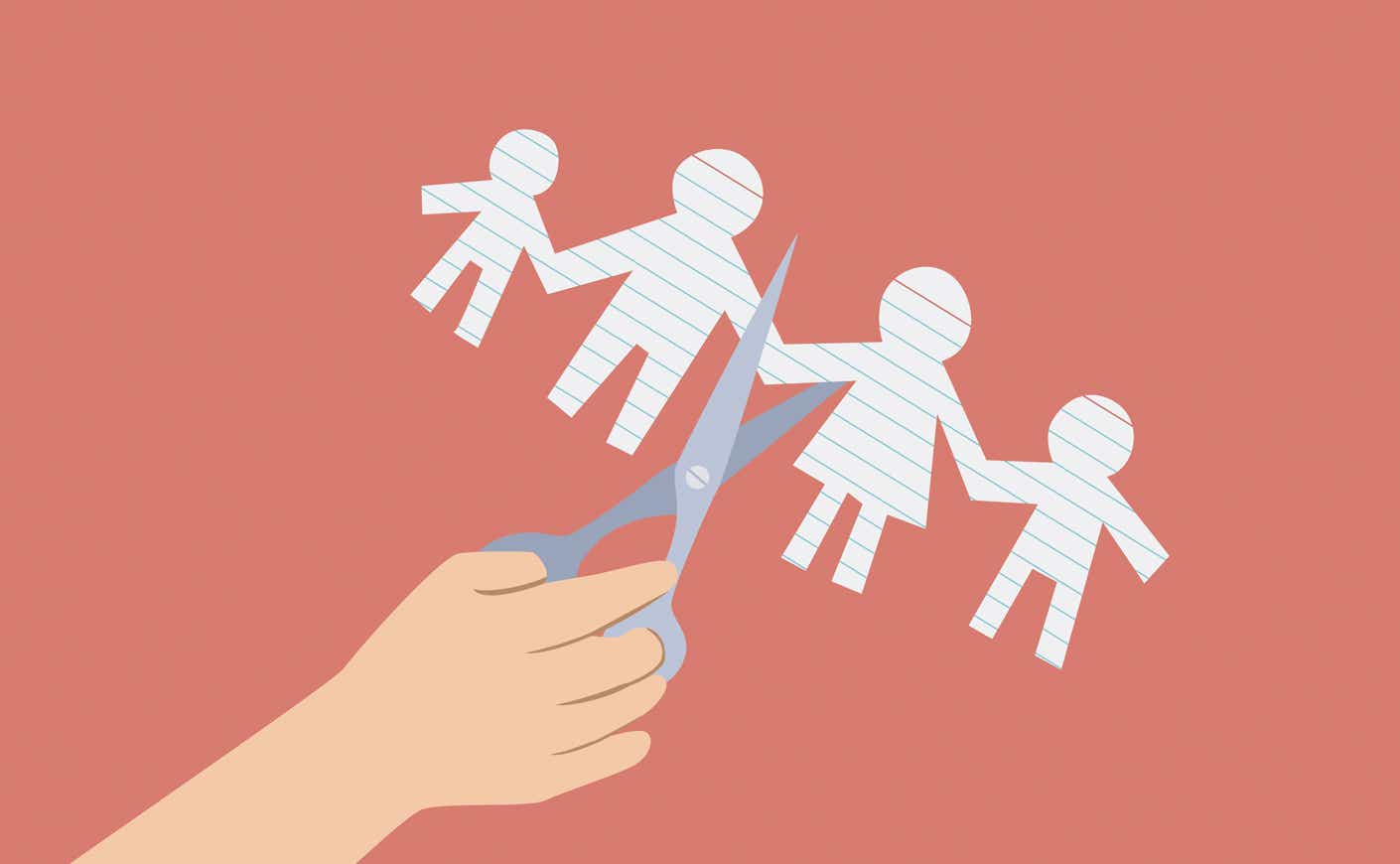After straining for years in a family fractured by alcoholism, Erica (who requested we use a pseudonym) decided that she'd had enough.
She was exhausted from attempting to uphold boundaries and improve communication between herself, her parents, and her brother. She even tried bringing everyone into therapy, but nothing seemed to work. “It felt a little like death by a thousand cuts,” she shares with KCM. And so over a decade ago, Erica made the difficult decision to cut her family out of her life.
“It’s heartbreaking,” she says.
Unfortunately, Erica’s story is not uncommon. A staggering 27 percent of American adults are estranged from their families, according to research from Karl Pillemer, Ph.D., a professor of human development at Cornell University. But Dr. Pillemer contends that figure could be even higher, considering the sensitive nature of the topic and people’s general reluctance to even speak about it, he writes in his book Fault Lines: Fractured Families and How to Mend Them. And some experts believe estrangement could be on the rise.
Parent canceling
In an opinion piece, Galit Atlas, Ph.D., a psychoanalyst practicing in New York City, argues that the practice of cutting family ties is becoming more and more popular. She thinks it’s a consequence of a broad shift in our culture. Punishing problematic institutions and people by turning our backs on them for good — or “canceling” in the vernacular — has proven itself effective in calling out racial injustice or disrupting the systems that have wrongly tolerated the bad behavior of powerful men, for instance. But what about “canceling your parents”?
Dr. Atlas believes a self-help trend, insisting on cutting ties with “toxic” family members, is catching on. In the last few years, she’s noticed a real uptick in patients dealing with estrangement in their own families and that her colleagues are noticing it too.
“I spoke with other clinicians and realized that we all feel that it’s related somehow to the culture,” says Dr. Atlas. “In many ways, I think the culture is more polarized. There is much more splitting between right and wrong, good and bad.”
In her op-ed, she points out, "Search 'toxic parents' on Instagram, and you’ll find more than 38,000 posts, largely urging young adults to cut ties with their families."
Dr. Pillemer said there’s no data to confirm this, but his hunch is that estrangement is probably increasing, because it’s becoming more socially acceptable especially among young people.
“The Greatest Generation had very strong family values — that you basically put up with, if not everything, almost anything. People really abided by the blood-is-thicker-than-water idea,” he says. “Younger people, even though they love their parents and care about them, if the relationship is unrelentingly aversive to them, they’re much more willing than previous generations to say, ‘I’m gonna take a break from this for a while.’”
How to reconnect with family
Many people, like Erica, report that they’ve thrived emotionally since cutting themselves off from their families and have no desire to mend the relationship. In many cases, estrangement really is a necessary course of action, and both parties are left better off after the split.
But there are also plenty of people, who have really suffered because they’ve fallen out of touch with their families. Dr. Pillemer says Fault Lines grew out of earlier research he had conducted on the life wisdom of older people. In interviews, he asked subjects about what their biggest regrets were, he tells us.
“I was expecting big-ticket items like an affair, or a shady business deal. But I hadn’t expected to find how many older people have as their major life regret an unresolved estrangement,” he says.
Dr. Pillemer has since interviewed hundreds of people who have experienced family estrangement and many who have managed to reconcile. Much of Fault Lines is devoted to advice given by people who have managed to reconnect with their families.
The first step, Dr. Pillemer says, is to do a “real self search” on whether you’re really ready to dive into the process of reconciliation. And to ask yourself, both what you hope to get out of restoring this connection and what is the least you’re willing to accept. Step two is to examine your own role in the estrangement.
“In some cases, people were able to identify things they had done, and that allowed them to craft a very sincere apology, which they had not been able to do before,” Dr. Pillemer says.
The next step involves abandoning the urge to force your own view of the past on the other person. Dr. Pillemer offers this example: “If Tom believes that his brother was a sadist as they were growing up, and Joe believes it was just ordinary teasing, that disconnect is not going to resolve itself at age 50. Neither person is going to accept the other person’s narrative,” he says. “So almost everybody who reconciles decides to abandon this urge to impose their view of what went on in the past and move forward.”
The final step is setting very clear boundaries. Oftentimes Dr. Pillemer found that people gave an estranged relative “one last chance, and made that extremely clear” to operate within agreed-upon terms. And that has worked for many families, he says.
Many interviewees described reconciliation as an emotionally grueling process, akin to “running a marathon,” Dr. Pillemer said.
“It requires a lot of self-searching and learning about oneself. They also found it to be a remarkable engine for personal growth,” he says. “And that even if the restored relationship wasn’t great, they felt that they had achieved something remarkable.”












